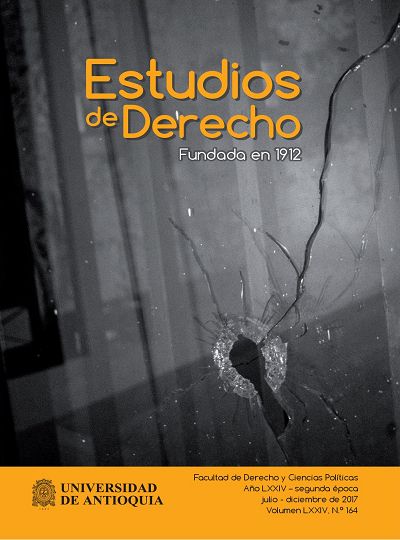Editorial
DOI:
https://doi.org/10.17533/udea.esde.v74n164a01Palavras-chave:
globalización, conocimiento, revistasResumo
Editorial
Downloads
Referências
Beck, U. (1998). La sociedad del riesgo. Hacia una nueva modernidad. Barcelona: Paidós
Luker, K. (2008). Salsa Dancing into the Social Sciences. Research in an Age of Info-glut. London: Harvard University Press
Publicado
Como Citar
Edição
Seção
Licença
A revista Estudios de Derecho é regulamentada pela Constitución Política de Colombia, artigo 61; Lei 23 de 1982, artigos 1 e 2; Lei 44 de 1993, capítulo II, artigo 6 e capítulo IV, artigo 51; Lei 599 de 2000 pela qual o Código Penal é emitido, artigos 270, 271 e 272. Além disso, a revista é regulamentada pelas normas estabelecidas pela Dirección Nacional de Derechos de Autor e da Organización Mundial de la Propiedad Intelectual (OMPI) para Colômbia. Finalmente, está apegada à Resolução da Reitoria 21231 de 5 de agosto de 2005, pela qual se emite o Estatuto sobre a Propriedade Intelectual.
Os autores que publicam em Law Studies continuam mantendo seus direitos, no entanto, eles devem ter em mente que o conteúdos da revista estão sob a Licença Creative Commons “Atribuição-NãoComercial-CompartilhaIgual”. O material disponível pode ser distribuído, copiado e exibido por terceiros sempre e quando sejam dados os créditos apropriados. Sem fins comerciais.














